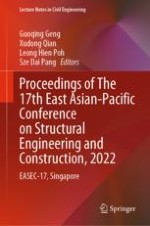2023 | OriginalPaper | Chapter
Preliminary Implementation of Adaptive Learning for Teaching Structural Systems to Non-engineering Students
Authors : Xinping Hu, Yang Miang Goh, Alexander Lin, Qizhang Liu
Published in: Proceedings of The 17th East Asian-Pacific Conference on Structural Engineering and Construction, 2022
Publisher: Springer Nature Singapore
Activate our intelligent search to find suitable subject content or patents.
Select sections of text to find matching patents with Artificial Intelligence. powered by
Select sections of text to find additional relevant content using AI-assisted search. powered by
